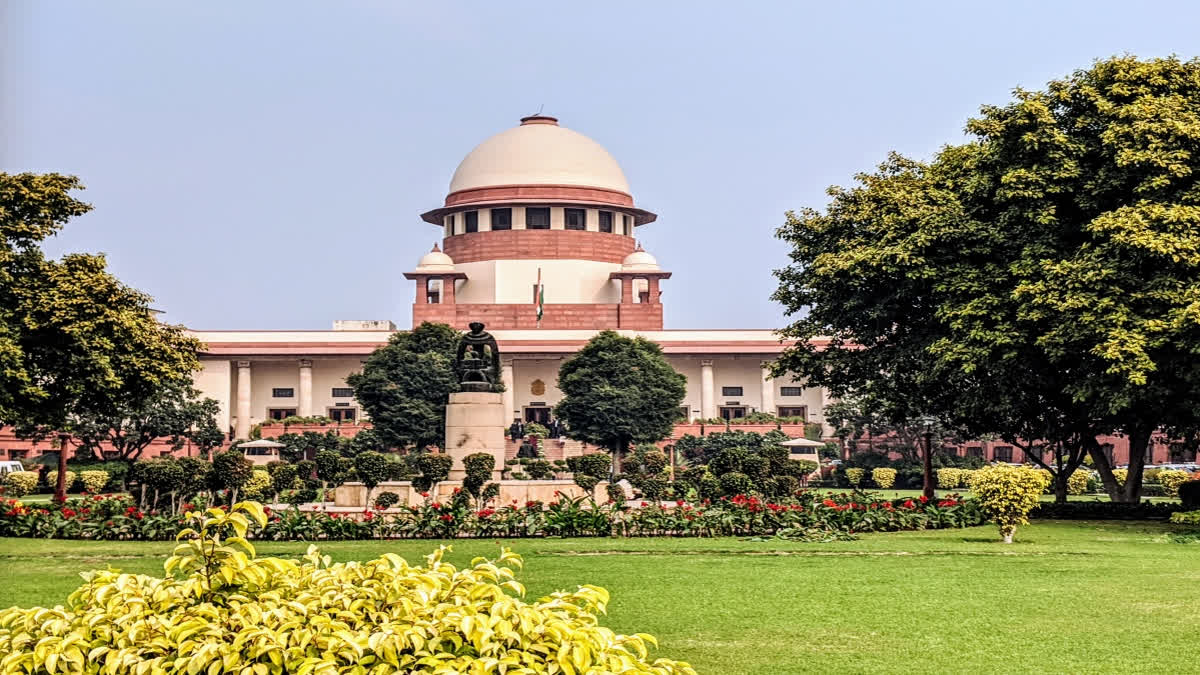New Delhi: The Supreme Court on Thursday directed constitution of a committee to formulate a uniform definition of the Aravalli hills and ranges. It also directed that until further orders four states -- Rajasthan, Haryana, Delhi, and Gujarat -- would be at liberty to consider and process application for grant of mining leases and also for renewal, but no final permission should be granted for mining in Aravalli hills.
The top court stressed that a total ban on mining is also not in the interest of mining, as it creates opportunity for illegal mining. A bench comprising Justices B R Gavai and A S Oka was hearing a plea in connection with mining in the Aravalli range. The bench noted that amicus curiae K Parmeshwar submitted that as far as state of Haryana is concerned there is no definition of Aravalli hills and ranges.
The bench said that the Central Empowered Committee (CEC) report submitted, in 2024, points at various illegal mining activities being carried throughout Rajasthan, and district wise details were provided regarding areas under illegal mining.
"We find that the issue regarding mining activity in Aravalli hills will have to be addressed jointly by the Ministry of Environment, Forest and Climate Change (MoEFCC) and all four states: Haryana, Rajasthan, Delhi, and Gujarat," said the bench.
The top court directed the constitution of a committee to have a uniform definition of the Aravalli hills and ranges. The committee will consist of secretary, MoEFCC, secretary forest of all four states, a representative of Forest Survey of India (FSI), a representative of the CEC, and a representative of Geological Survey of India (GSI). The bench said the convener of the committee will be joint secretary, MoEFCC and the committee should submit its report within two months.
Solicitor General Tushar Mehta, appeared for Haryana, and additional solicitor general K M Nataraj, appeared for Rajasthan. Senior advocate A D N Rao, also amicus curiae in the matter, said there should be mapping of Aravalli hills in Haryana, as being done in Rajasthan by FSI.
Mehta submitted that renewal of mining leases can be left to the government. The bench said in case there is an issue, the government can immediately move the court.
The bench noted that the amicus Parmeshwar further submitted that until further orders of this court, no fresh mining leases or renewal of the existing mining leases can be permitted in Aravalli ranges in Rajasthan and Haryana. A counsel pointed out that mining activity has already ceased in Haryana.
The suggestion made by amicus was opposed by Mehta and Nataraj, and also by a counsel, representing a Rajasthan-based mining association. It was argued before the apex court that suggestions made by amicus will severely impact several labourers associated with mining activities in these states and also affect their livelihood.
The bench said that total ban on mining is also not in the interest of mining, as it creates opportunity for illegal mining. In view of the matter to balance the interest of environment and mining activity, the court issued following direction: until further orders, all four states, would be at liberty to consider and process application for grant of mining leases and also for renewal, but no final permission should be granted for mining in Aravalli hills as defined in the FSI report.
The top court clarified that this order should not be construed to be prohibiting legal mining activities and the order is restricted to only mining in Aravalli hills and ranges.



